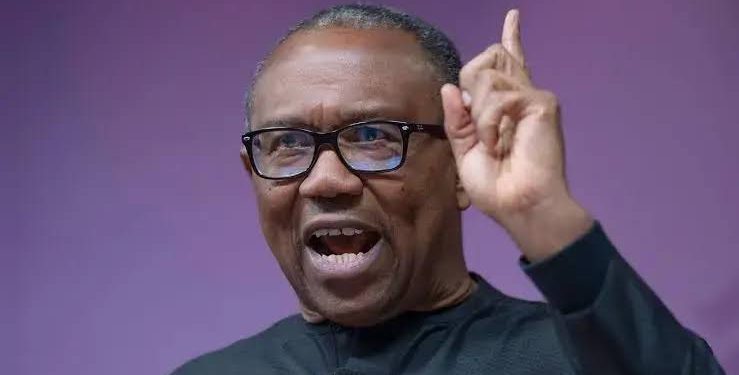The Nigerian political discourse has once again been set ablaze, this time by a powerful proposition from a familiar figure. Peter Obi, the 2023 presidential candidate for the Labour Party, has put forward a radical idea that could fundamentally reshape the country’s political future: a single, five-year term for the president. This is not just a passing comment but a calculated proposal aimed at tackling some of Nigeria’s most entrenched challenges.
The suggestion came during a high-profile visit to Bauchi State, where Obi, known for his “no-frills” political style, met with Governor Bala Mohammed. Obi drew a parallel to South Korea, a nation he highlighted as a model where a five-year single term for the president has proven effective. He argued that this structure would compel an occupant of the highest office to focus solely on governance and development, free from the distractions and pressures of a re-election campaign. “If I have the opportunity, we should stop having a second tenure for presidents. It should be five years,” Obi stated, in a move that has since sent ripples through the political sphere.
ALSO READ: https://nationscuriosity.com/why-the-norths-woes-are-not-tinubus-fault/
This isn’t the first time the idea of a single-term presidency has been floated in Nigeria. The country’s history with term limits is a complex one. The current constitution, established in 1999, limits the president and state governors to two four-year terms. This was a deliberate choice to prevent the kind of “president for life” scenario that has plagued many other African nations. However, the current system has its detractors, who argue that the quest for a second term often becomes the primary focus of an administration, leading to a neglect of critical issues and a political climate rife with horse-trading, patronage, and sometimes, violence. Former President Goodluck Jonathan, for instance, had also proposed a single-term of six years back in 2011, though the idea never came to fruition.
Obi’s proposal, however, carries a unique weight. He is not just another politician but a leader who, through his 2023 campaign, galvanized a massive youth movement and disrupted the traditional two-party political landscape. His followers, often referred to as “Obidients,” have been particularly receptive to his calls for fiscal prudence, accountability, and a shift from a consumption-based to a production-based economy. The five-year single term fits neatly into this narrative, as it is framed as a way to eradicate the inefficiencies and corruption associated with re-election politics.
The arguments for a single term are compelling. Proponents, including Obi, believe it would free presidents from the constant need to play politics, allowing them to make tough, long-term decisions without fear of a backlash at the polls. It could also drastically reduce the enormous costs associated with conducting elections every four years, and potentially curb the political violence that often accompanies such contests. Furthermore, it would facilitate a more rapid rotation of power among Nigeria’s diverse geo-political zones, a concept that is highly valued in the country’s unwritten political code.
However, the proposal is not without its critics. Opponents of a single term argue that it could inadvertently lead to a president who is less accountable to the people. Without the incentive of seeking re-election, a leader might become complacent or even more susceptible to corrupt practices, knowing there are no future political consequences for their actions. The accountability that comes with facing the electorate for a second time, they contend, is a vital check on power. A single term could also be too short a time for a president to implement meaningful, lasting reforms, especially in a country as complex and multi-faceted as Nigeria.
As the debate rages, Obi’s proposal is doing what his 2023 campaign did so effectively: it is forcing a national conversation about the very fundamentals of Nigeria’s governance. Whether a single-term presidency is the magic bullet for Nigeria’s problems remains to be seen. But what is clear is that a powerful new voice is advocating for a change that could forever alter the course of the nation’s political trajectory, and Nigerians are watching closely to see if this bold new idea gains the momentum it needs to become a reality.


